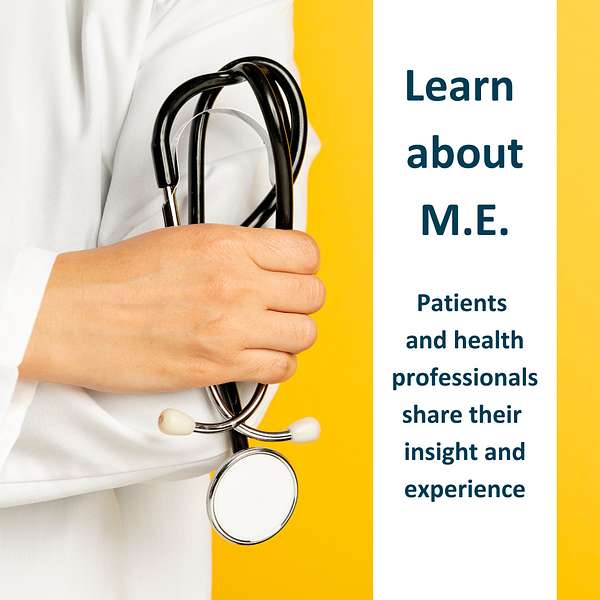
Learn about ME
IMPORTANT Learn about M.E. podcasts contain general information about ME/CFS shared by professionals and individuals with lived experience. This is not medical advice, and should not be treated as such. You must not rely on the information on this website as an alternative to medical advice from your doctor or other professional healthcare provider. Any symptom management approach must be considered on a case-by-case basis by an experienced medical professional.
Learn about ME
Episode 8 - Learn About M.E. and Decode M.E.
Use Left/Right to seek, Home/End to jump to start or end. Hold shift to jump forward or backward.
This is the eighth in our series of podcasts on Myalgic Encephalomyelitis (M.E.)/Chronic Fatigue Syndrome (CFS). In this episode, we discuss the exciting new research project, Decode M.E., launched in September 2022. This is the largest M.E./CFS study in the world and aims to identify potential genetic causes of why people become ill with M.E./CFS. It is funded by the Medical Research Council (MRC) and the National Institute for Health and Care Research (NIHR). The study is led by Professor Chris Ponting at the University of Edinburgh and places people with M.E./CFS absolutely at the heart of the study. People with M.E./CFS are an essential part of the Patient and Public Involvement (PPI) steering group along with carers and other stakeholder organisations in the M.E. field.
Three guests Andy Devereux-Cooke, Co-investigator of Decode M.E., Sonya Chowdhury, CEO of Action for M.E and Co-investigator and Prof Chris Ponting discuss the project and the potential impact it can have in improving the science around M.E. Just now, little is known about what causes M.E., how to diagnose it and manage the symptoms that result. The absence of research in this area has resulted in a lack of treatments and strategies that support people with M.E. to manage their health and improve their quality of life.
The guests ask that anyone over 16, diagnosed with M.E./CFS and living in the U.K. spits for science and participates in the study. People can go online to https://bit.ly/3S24p3m and take a questionnaire that will collect valuable information on people’s lived experience:
- People can pause and re-start the questionnaire or phone for support if they can’t complete online.
- People who meet the study’s criteria will be asked to provide a DNA sample via their saliva. A kit is then sent out and can be posted back so the DNA in the sample can be analysed.
- The criteria for inclusion in the study is strict to ensure the robustness of the evidence obtained. This may mean that some people with a diagnosis don’t go on to take part but their answers to the questions will still be useful.